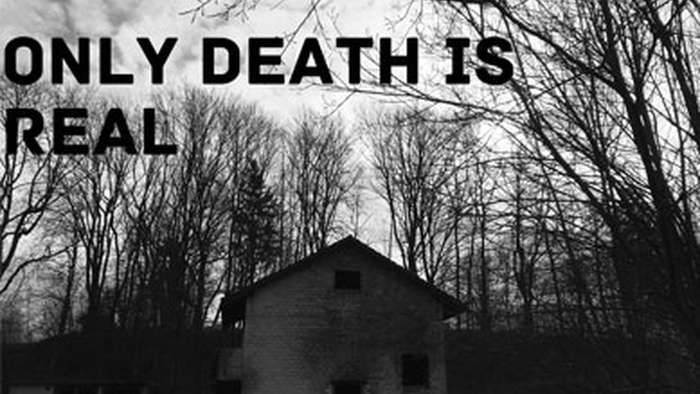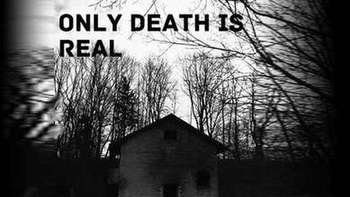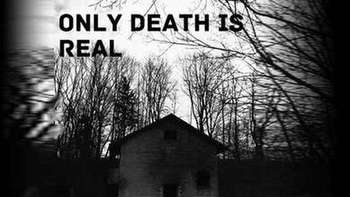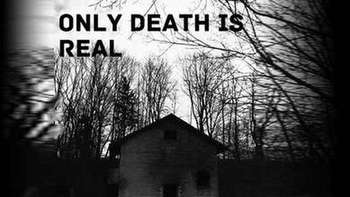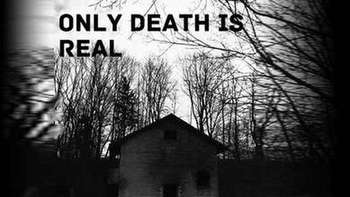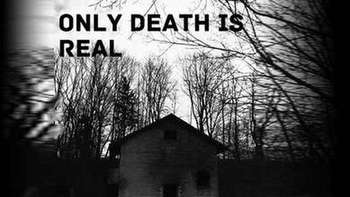The world has gotten exponentially more weird since the last time this column was published and it doesn’t seem as though it’s going to get any better any time soon. Music can help in a multitude of unusual situations and perhaps these five records go some way into making these strange times a little more bearable.
Stay safe. Stay healthy.
 Fluisteraars – Bloem (Eisenwald)
Fluisteraars – Bloem (Eisenwald)
This is the third full-length from Dutch duo Fluisteraars and is a skillfully realised record. Released at the end of February, Bloem fast became one of the most talked about records of March and it’s easy to see why; harsh black metal is married to delicate, poetic passages, often within the same song – “Maanruïne” (the final track on the album) is a great example of such contrasts – and the band stitch the sections together with great care and cohesion. “Maanruïne” is an affecting composition that conjures images of sorrow and hope and there’s a certain pastoral feel to this song and the ones that precede it, as though they are hymns to days long passed and the simpler lives we used to lead – albeit ones that were predicated on believing that supplicating to a higher power was the way to survive.
“Tere Muur” opens the record and immediately sets the tone with fast-paced drums and deep growls. Vocals are used sparingly and instead the music is given the space to set the atmosphere and where a voice does appear, it does so without overwhelming the mood and only adds to the raw edge that Fluisteraars are creating with their sound. “Nasleep” follows similar patterns. However, the guitars lend a somewhat mournful aspect to the narrative which echoes through ghostly howls and curious, dissonant effects which segue into haunting guitars and a level of sadness not yet shown on Bloem, but one that does cascade throughout the rest of the record. It’s truly beautiful in its anguish and the feeling of loss is one that is tangible and heart breaking.
B. Mollema’s voice on “Eeuwige Ram” is all at once clear and devastating and their voice is given prominence in a song that sways with despair and while the lyrics and sang in a Dutch dialect, the agony of the past is starkly apparent. Bloem is a look back at harder times, encased in myths and local folklore, and is presented as an ode to moving past those difficult moments and allowing something wonderful to flourish.
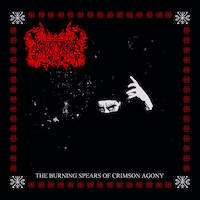 Lamp of Murmuur - The Burning Spears of Crimson Agony (demo) (Independent)
Lamp of Murmuur - The Burning Spears of Crimson Agony (demo) (Independent)
How many demos can a band put out before people wonder if a traditional full-length will ever see the light of day or if the band are just revelling in their status as a “cult” project? For American enigma Lamp of Murmuur, the answer is as many as they damn well please because the music is just so, so good. Black metal sometimes gets fully into its own feelings as an outsider genre and bands think that releasing ten demos and three EPs in a year is the way to go about it they’ve clearly got the material but perhaps it’s not that great and they’re stretching out the ruse for a little longer than necessary. Lamp of Murmuur have the songs. They released three demos in 2019, a dungeon synth reimagining of some of those songs as an EP, a split and this, The Burning Spears of Crimson Agony, another demo, in 2020, and every single thing has been excellent. This is black metal at its most outsider, isolated and raw and Lamp of Murmuur are completely worth the time and energy.
The Burning Spears of Crimson Agony sounds like it could have been recorded in a basement – there is no vanity in this project – yet there is a level professionalism in the final output: the instruments are distinct within the mix and the vocals are present enough to be fairly comprehensible. There’s not a great deal of information about the project readily available and the aura of the band is certainly tending towards a solo effort – it’s in the anguished howls, cold as ice guitar riffs and the glaringly stark artwork that features a lone apparition in high contrast black and white/red. It’s got the classic old school black metal features with slightly more modern production and songs that are devastatingly catchy in their rhythms.
Opening track “A Burning Spear to the Heart of Dawn (Part I)” celebrates the lost art of melody in raw black metal and immediately sets the tone for the rest of the demo. Guitars are ramped into addictive riffs while the drumming moves at a frenetic pace (it’s worth nothing that if this is indeed a solo project, then the level of musicianship on display is quite remarkable), evoking a little of the black and roll atmosphere that Aura Noir or Midnight would be happy to call their own. Vocals are howled into the cold night and as mentioned, they are pushed forward enough in the mix to really stand strong – often this kind of raw black metal aims for a more “kvlt” feel by hiding the voice and giving it a much more haunting effect, which, yes, is great at times but sometimes you’re just really interested in what a person is trying to say and not how cool you’re gonna look by enjoying the music. So, Lamp of Murmuur giving such prominence to those otherworldly vocals is already much more interesting overall, particularly when that voice segues into some utterly unexpected avenues.
Part II of “A Burning Spear to the Heart of Dawn” is preceded by a gloomy synth-led interlude, “Meditating in the Poisonmists” that serves to allow a moment of respite from the rampaging sounds that came before. There’s a curious melody within this interlude that calls to mind the chorus of “Breathe” by The Prodigy, which is either a total coincidence or a neat trick and this line follows into “A Burning Spear to the Heart of Dawn (Part II),” although not straightaway and it’s not particularly obvious at first, which seems to ring true for much of Lamp of Murmuur’s music – expect the unexpected.
It’ll be interesting to see exactly what this band does next. The rate of new music being released suggests either an extremely prolific artist and/or someone who had a lot of high-quality material ready to go when they decided to push the band forward -- but for how long, who knows? Lamp of Murmuur will surely burn brightly…..for the near future, at least.
Addendum: days after writing this it was confirmed that Lamp of Murmuur would, in fact, be releasing a full-length record in 2020. Kismet.
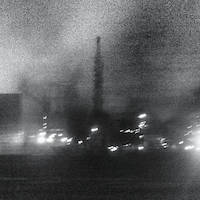 Phantom Hymn – The Future as Nightmare (Independent)
Phantom Hymn – The Future as Nightmare (Independent)
There’s somewhat of a jarring start to Phantom Hymn’s second offering, The Future as Nightmare, in that the self-titled opening track is a beautiful, albeit melancholy, instrumental that sets an incredible sombre tone before “Dead End Dreaming” changes things completely. Heightened rage moves through the song in waves of blackened crust-punk, bellowed vocals that wouldn’t be out of place on a hardcore song and a sense of groove that has no business being so good.
The brainchild of one person, Ian Makau, and seemingly performed by them entirely, The Future as Nightmare is a prescient release that taps into the undercurrent of fear and panic that the world of 2020 is dealing with right now. It’s a record that hits hard from the outset and doesn’t let up and, while a lot of the songs are sub-three minutes and pack a heck of punch, the longer tracks hold weight in their more emotional payoff. “Lips of Wisdom” is covered in an aggressive sheen with Makau’s vocal dripping with spite, yet the guitars that move underneath are layered with a delicious agony, giving the song a feeling of utter gloom and hopelessness. The shift from such intense anger to equally-as-intense sadness is handled with grace and shows that Phantom Hymn are not afraid of showing just how affecting the modern world can be on the human condition.
That sadness follows into the instrumental “Golden Chains” before “Digital Dark Age” pulls us back to harsh reality on deep roars and climbing guitars. The blackened edges of Phantom Hymn’s sound are rough to the touch and that’s what makes it so believable, that the band had so much emotion and rage against the world that it spilled out as a raw, affecting release that, while the world is burning, shows much promise.
 Stellar Descent - Cycles of Life (Nebulae Artifacta)
Stellar Descent - Cycles of Life (Nebulae Artifacta)
How should one begin to talk about a three-hour movement of music? What is the starting point and where should it end? It’s impossible to pick a song to describe and highlighting time stamps is not interesting for anyone, least of all the writer. Cycles of Life is one such work and is a long-form composition that was in the making for seven years, with Stellar Descent initially releasing a two-hour version way back in 2013 as a solo artist (Anthony W. being the sole member at the time and joined in 2016 by Jon R.) and subsequently building upon the concept to create this expanded version of the original, and very limited, version of that song.
What then, does seven additional years working on a piece bring? Having not been privy to hearing the 2013 edition, it is only possible to judge based on what Cycles of Life 2020 sounds like. It is a breath-taking accomplishment; the music flows organically from dense, layered screams to gorgeous acoustic guitars, each taking the time needed to allow the song to flourish from its beginnings and move itself progressively into the ensuing sounds. As the song advances it does come with a narrative, of sorts, and while the vocals are hard to decipher in terms of lyrical value, the emotion that is tied into the shrieks are rooted in reality – the pain of change and moving forward is clear.
Stellar Descent build a lush and vibrant landscape with their music. Reflections of the past are mirrored in the mournful last moments of the first section (if you’re listening on bandcamp, Cycles of Life is split into three separate tracks due to the limitations of the upload system) and a distinct current of sorrow then filters through into the second movement – it is difficult to not think of moments of loss or fading memories during this time and the simple acoustic guitar builds against synthesised textures of sound in order to create an atmosphere of abject misery. Later, the song progresses to a much more aggressive state where drums become more prominent and the screams somehow even more anguished, and it’s in this change that we understand how the passage of time transforms us and moulds us into something new.
Life, death and rebirth are concepts that have long followed humanity and are the basis for many belief systems -- nature follows this path succinctly and so does Cycles of Life in its slow, careful beginnings, it’s blossoming middle section that reveals layers of truth and in its closing stages where it moves into despair before succumbing to the inevitable.
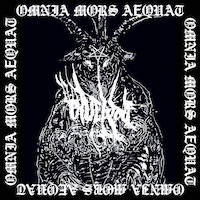 Ulveblod - Omnia Mors Aequat (Consouling Sounds)
Ulveblod - Omnia Mors Aequat (Consouling Sounds)
Sounds of screams echoing in a lightless chamber, layered upon one another in a chaotic maelstrom of noise…the initial moments of Ulveblod’s debut are not for the faint hearted -- this is black metal at its most raw and uncompromising. It strikes terror within the first seconds. Ulveblod are a new prospect on the Dutch black metal scene yet their founder, V. has long been a part of that world having been established in the incredible Nihill before the untimely passing of their vocalist, M. Eikenaar. Here, V. creates music that has been mutated beyond all known structures of sound and Omnia Mors Aequat tears down the walls of expectation and injects it with primal screams and radiant pain.
“Seven Heads and Ten Horns” and “Purifyed by Fire” are ten minutes of utter confusion as discordant guitars descend over inhuman shrieks and cries. Each pushed to its limits and laced with feedback, it becomes a nightmare made real, a world in which we find ourselves living in and one that sees darkness as its only respite. It’s an echo of our world seen through the mind of one person. The inhale of breath you take after only two songs is noticeable and necessary, particularly when it comes to the final track, “The Dying Wound of God,” which is a twenty-one minute monument to pain.
“The Dying Wound of God” wraps its skin around a malignant beat that festers in overdriven effects while vocals are pulled back and kept slightly behind the overpowering instrumentation. It’s bizarrely rhythmic and the sense of being dragged deeper under the earth is palpable in its mesmerising tones. Ulveblod maintain this hypnotic speed for nigh on fifteen minutes before closing the song on five minutes plus of utterly weird electronic pulses and haunting effects. It’s bold and it is certainly a powerful end to a commanding record.
